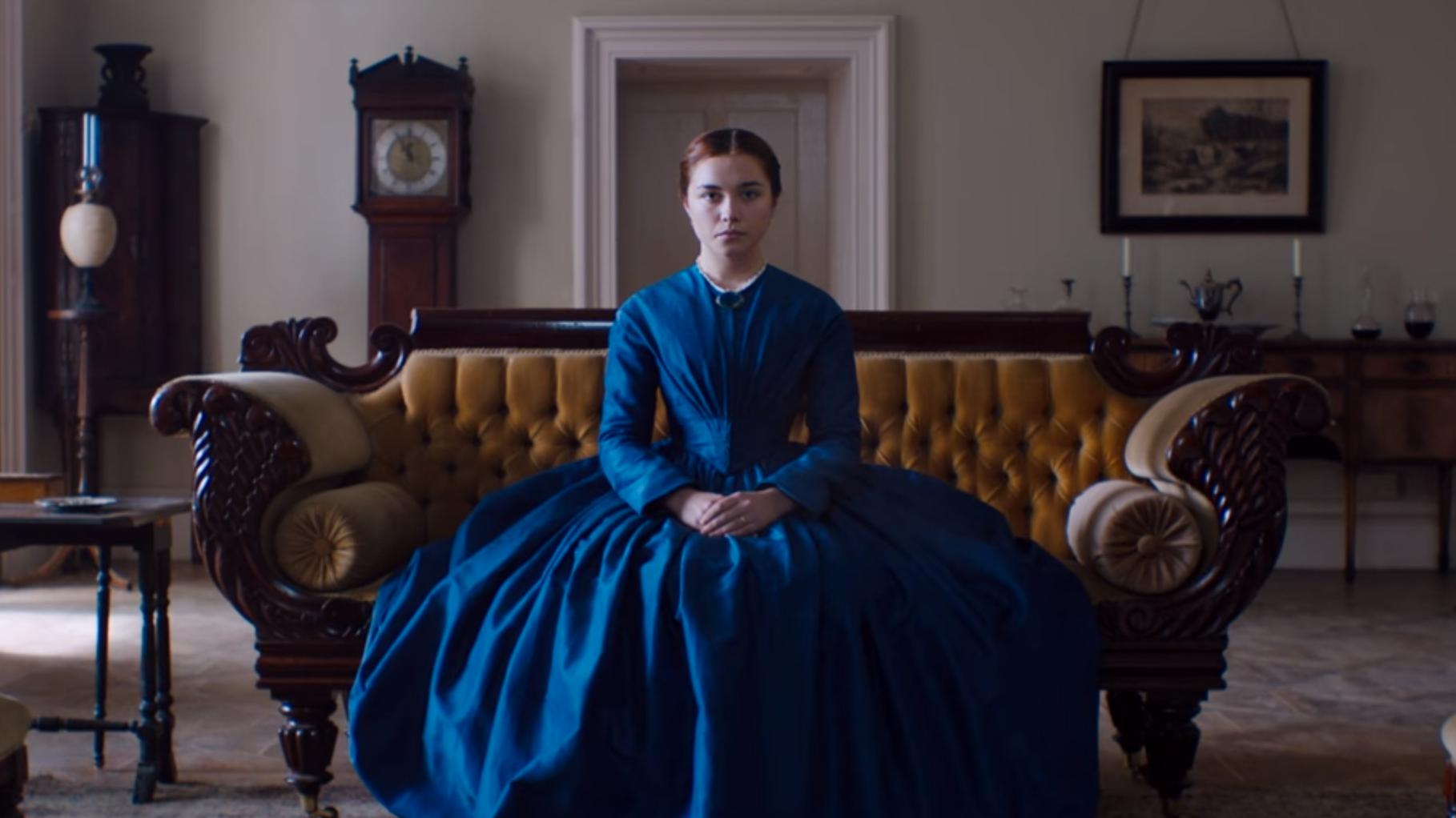
Set in 1865, Edward Oldroyd’s Lady
Macbeth transports its source material (Russian novel Lady Macbeth of the Mtsensk by Nikolai Leskov) to an austere house
in Northumberland, where Catherine (Florence Pugh) is trapped in a loveless arranged marriage
to the older Alexander. Though initially
frustrated by the restrictions imposed on her by her husband, when Alexander leaves
to attend to an accident at one of the family’s mills, Catherine begins to
exert her power over the household and its servants, including shed-dwelling
workman Sebastian.
Some viewers will be familiar with much of
what’s on offer here – wayward lass,
brawny servant, pinched puritanical elders, desolate moorland – but the film
puts an intriguing spin on these well-worn elements and Lady Macbeth’s slow pace and beautiful photography has its own
unique hypnotic effect. Catherine’s boredom with life within the cold
whitewashed walls of the house is brilliantly captured by the lingering shots of
Pugh sitting in full wifely attire on a couch, staring directly at the camera. The stillness of life on the estate is also
accentuated by the lack of a music on the soundtrack and the comparative
loudness of creaky doors opening and closing and the echo of footsteps in
corridors.
In a film short on
dialogue, there are memorable turns by a flinty Christopher Fairbank as
Foster’s father and Naomi Ackie as a servant caught between masters, but the magnetic
Pugh (last seen in a similarly compelling role in Carol Morley’s The Falling) is the quiet centre of the
film, her inscrutable expression at the heart of the mystery of this curious
mood piece.
No comments:
Post a Comment